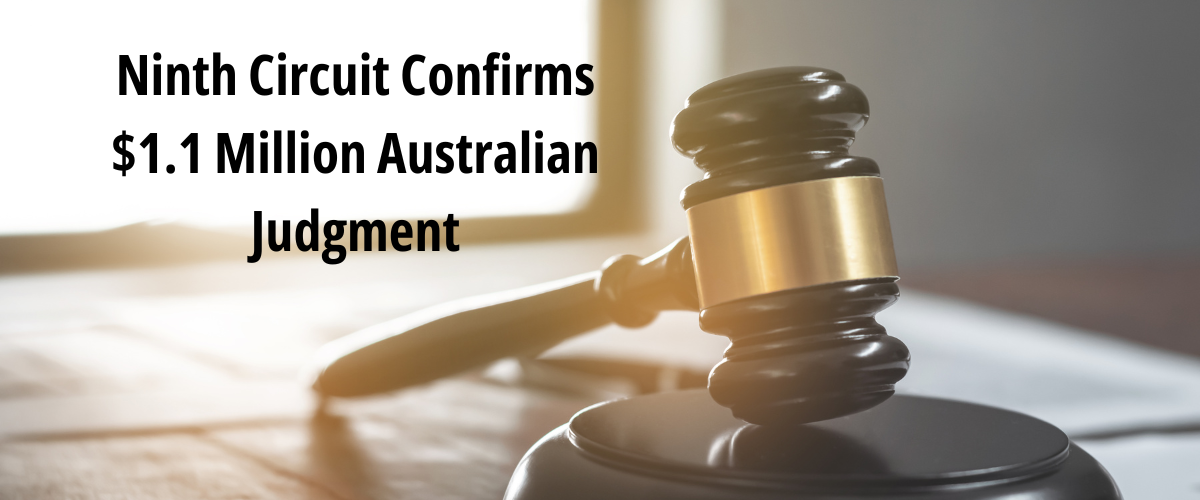The Ninth Circuit issued a published decision on March 3, 2022, which confirmed an Australian judgment in favor of our client, Maria Corso. In 2016, the Australian court awarded about $1 million in damages to compensate for severe injuries that Ms. Corso suffered in Australia due to a tattoo removal product made by Rejuvi, a California company. As the Ninth Circuit recognized, those injuries included chemical burns, chronic pain, nerve damage, post-traumatic stress, and a tumor that formed in her left kidney.
Rejuvi opposed enforcement in three different courts in two continents (U.S. district court, Australian court, U.S. bankruptcy court). After Ms. Corso filed an enforcement action in California, Rejuvi belatedly asked the Australian court to set aside the judgment so Rejuvi could raise merits defenses. When the Australia Court rejected that request, Rejuvi opposed enforcement in the U.S. on the ground that that the Australian court lacked personal jurisdiction. The bankruptcy court rejected that defense, but the district court reversed.
The key issue in the Ninth Circuit appeal was whether a party that asks a foreign court to set aside a foreign judgment so it can litigate the merits can properly oppose recognition of the judgment on the ground that the foreign court lacked personal jurisdiction under U.S. law. The Ninth Circuit held “NO,” the set-aside application is a voluntary appearance that waives any challenge to personal jurisdiction under the California Uniform Act on Recognition of Foreign-Country Money Judgments.
The Ninth Circuit decision is very meaningful for our client, Maria Corso. It means she will finally receive compensation for the injuries she suffered long ago.
The Ninth Circuit decision is also an important precedent. It means that a party challenging recognition of a foreign judgment cannot get “two bites at the same apple.” The party can either challenge the foreign court’s jurisdiction in the U.S. enforcement case, or it can ask the foreign court to set aside the judgment so it can raise merits defenses. It cannot do both.
Grant Kim argued the appeal. Jack Darbinyan helped with the appeal. James Till and David Nealy assisted with the underlying bankruptcy case.
LimNexus has successfully enforced a number of other foreign court judgments and foreign arbitral awards.

